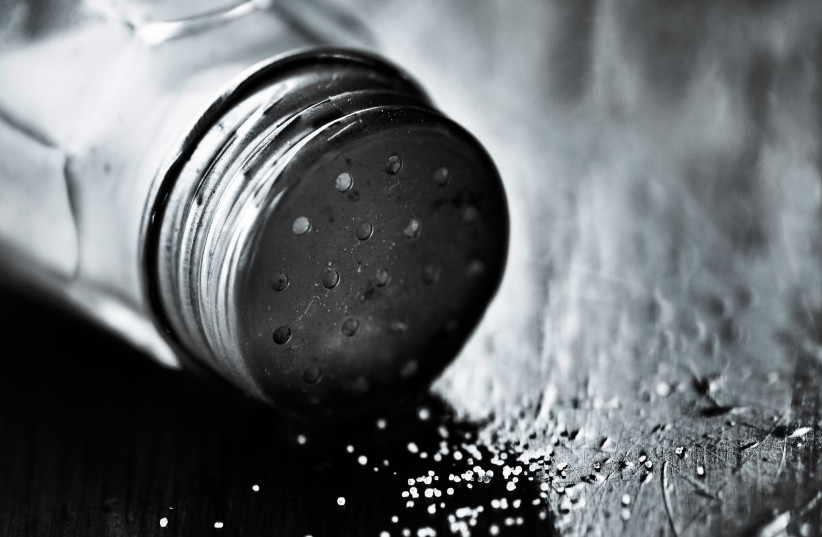Differences in medical conditions and health are increasingly being discovered between males and females. There is growing evidence that women of all ethnic backgrounds and ages are more sensitive to salt than men and that this tendency to hold onto more salt – which drives up blood pressure – increases after menopause.
Another important emerging bottom line is that healthy blood pressure levels may differ between the genders, which means that females might benefit from earlier and different interventions to avoid damage to their heart and blood vessels.
“The realities are that women and men regulate their blood pressure differently, and their blood pressures are different at baseline,” said Dr. Eric Belin de Chantemele, physiologist in the Vascular Biology Center at the Medical College of Georgia at Augusta University. He worked with vascular physiologist Dr. Jessica Faulkner and Augusta University graduate student Candee Barris.
Belin de Chantemele and his team have just published their findings on the cover of the American Heart Association’s journal Hypertension under the title “featured on the cover of the American Heart Association journal Hypertension under the title “Salt Sensitivity of Blood Pressure in Women.”
Protection against heart disease

It’s generally thought that females are better protected against cardiovascular disease than males until the women enter menopause when the risk is believed to level out. Lab studies in hypertension rat models, like the Dahl Salt-Sensitive rat, have generally supported those ideas, including equalization of risk in the two sexes after surgical removal of the ovaries.
However, in women and some mouse models, the protection appears less absolute because more women are salt sensitive before menopause, and menopause exacerbates both its severity and prevalence, the researchers wrote.
What's going on with salt sensitivity?
That supports yet another emerging concept – that the sex chromosome XX predisposes females to salt sensitivity, presumably because females need to nearly double their fluid volume during pregnancy, and estrogen does help mitigate some of the related increased risk, at least until its levels drop after menopause, said Belin de Chantemele.
“Salt sensitivity is one of the leading factors for hypertension, and if you look at people who have treatment-resistant hypertension, which is most people, most are salt sensitive,” they said. “It’s very important to know the cause of that.”
Salt sensitivity means your body has an apparent natural tendency to hold onto salt rather than excrete the excess in the urine. Salt sensitivity of blood pressure is when blood pressure decreases or increases more than 10% in response to how much salt you are consuming. There is good human data showing that reducing salt intake reduces salt sensitivity and even more so in females, Belin de Chantemele said.
Salt sensitivity is a factor in about half of cases where the cause of hypertension is not obvious, like a kidney problem. It’s also a usual contributor to treatment-resistant hypertension, and only about one in four adults have their hypertension under control, according to the US Centers for Disease Control and Prevention.
“We think it’s mostly the vascular system in the body not relaxing in response to an intake of sodium that is leading to an elevation in pressure,” they continued. Animal studies of salt sensitivity generally indicate that the kidneys, which should excrete more sodium when we consume too much, are working fine in females. In fact, human and lab animal evidence indicates that female kidneys are better at salt excretion. The problem, it appears, is with the vasculature, because salt should also make the blood vessels relax.

“If you expand your blood vessels more, then you will be able to keep your blood pressure stable, but if your vessels do not relax, that is how pressure goes up,” Belin de Chantemele said. “Later on, you also excrete sodium to reduce your blood volume, but the first response should be relaxation of your blood vessels, and that is the way it works in those of us who are salt resistant – but apparently not so well in many females.
One of the other unique factors about females that Belin de Chantemele and others have found is that because their bodies are prepared to reproduce, they have high levels of the hormone aldosterone, which is produced by the adrenal gland and has a direct effect on blood pressure by regulating salt-water balance in the body. Females also tend to have many more receptors for aldosterone.
High levels of aldosterone are known to contribute to harmful things for the body like widespread inflammation, stiff and scarred blood vessels, as well as enlargement of the heart. Scientists think and have some evidence that in women, aldosterone is mostly damaging to blood vessels, including their important ability to dilate to accommodate more blood volume in response to holding onto more salt. The scientists see this effect in both their lab mice and in women. “We think that what is happening is that salt-sensitive females can’t reduce their aldosterone production enough and we think that predisposes them to salt sensitivity,” Belin de Chantemele suggested.
There are drugs that target aldosterone, including the old blood pressure medication spironolactone, as well as newer drugs like eplerenone and finerenone, which Belin de Chantemele has studied in the lab and which he has been advocating as a good first-line treatment for females because they lower aldosterone action.
There is also evidence that females tend to like salt more than males, Belin de Chantemele concluded. Like many sex-related differences, the proclivity for salt likely relates to the physiological need to retain sodium and the fluid which follows sodium, which is sufficient to sustain another life in pregnancy. There also is some evidence that the male hormone testosterone suppresses the appetite for salt. He recommends that all of us cut down drastically on our salt intake.
